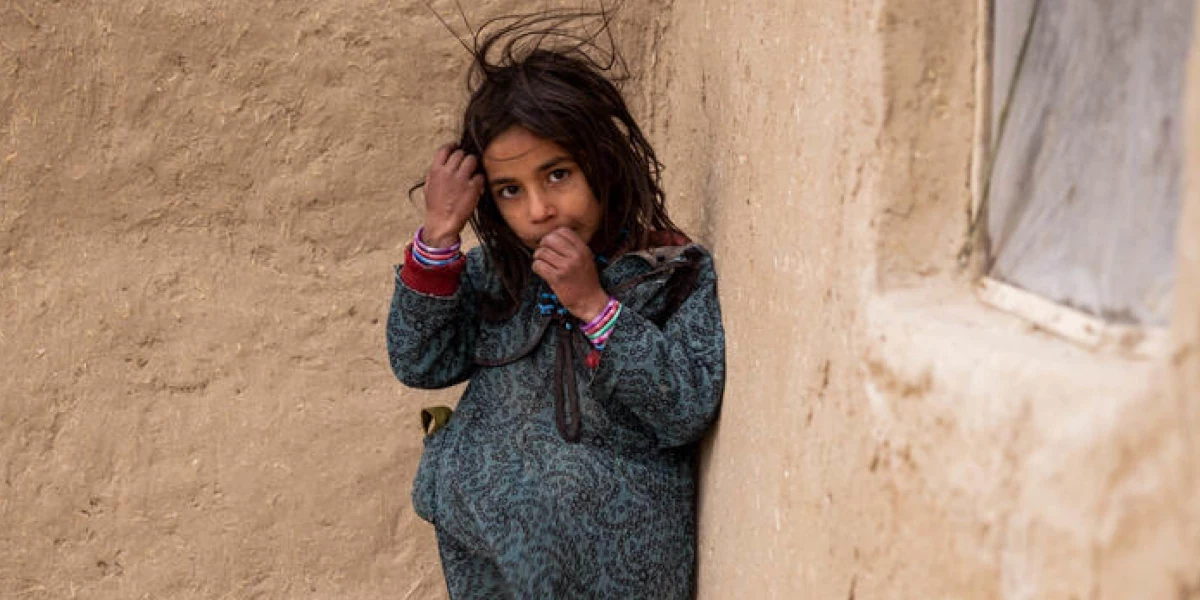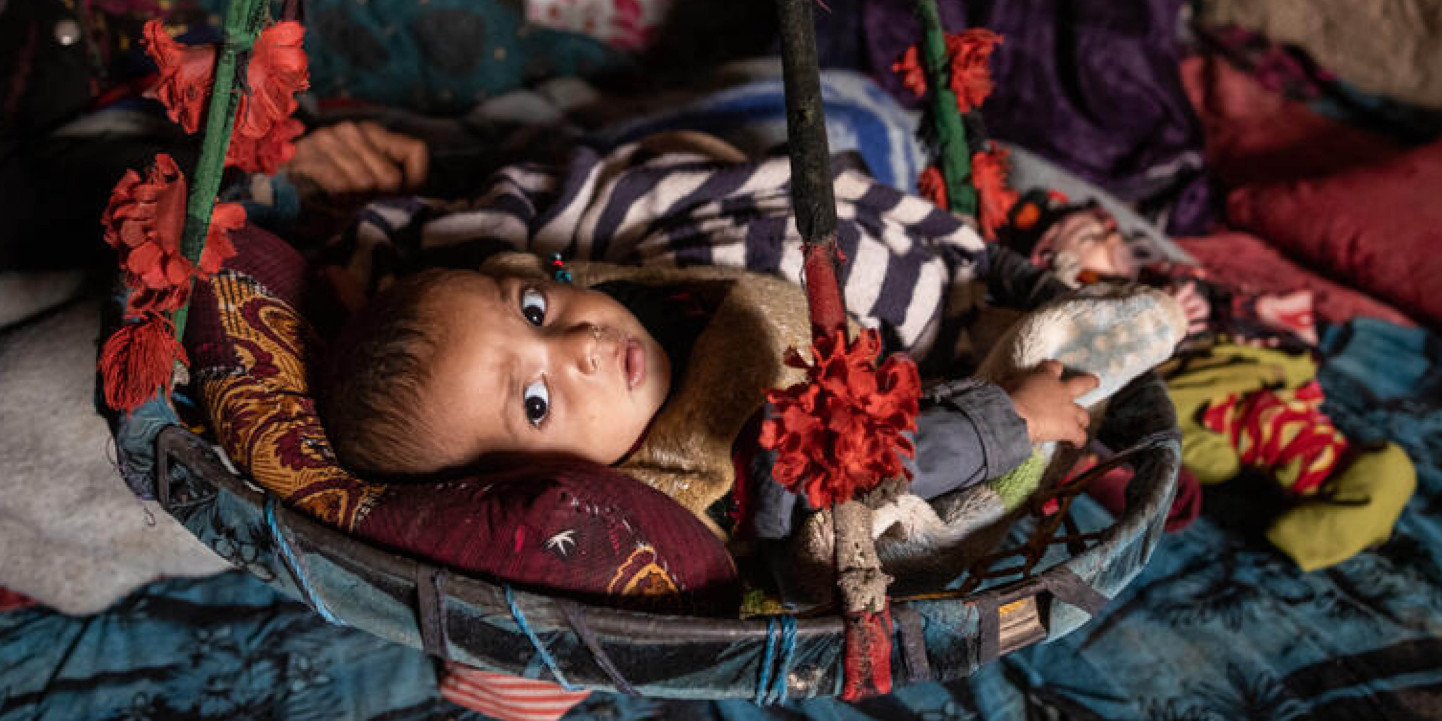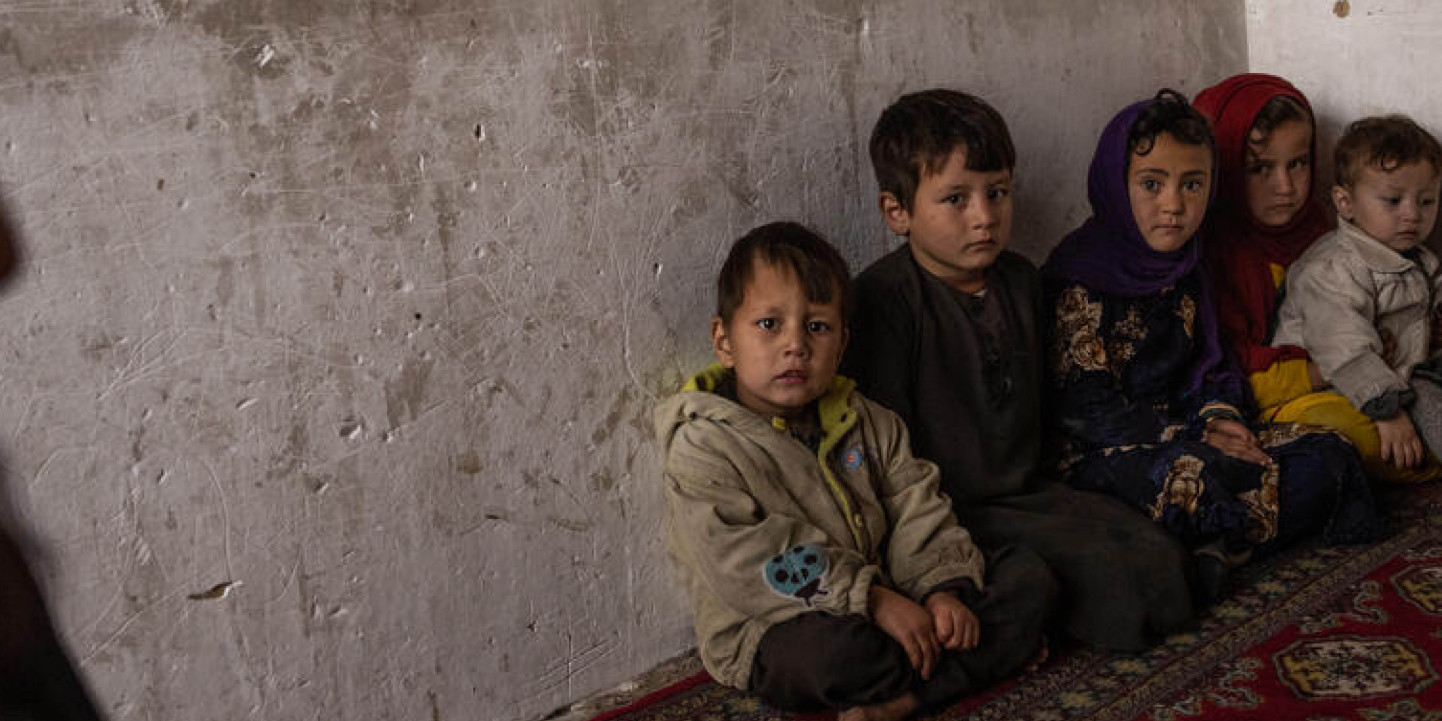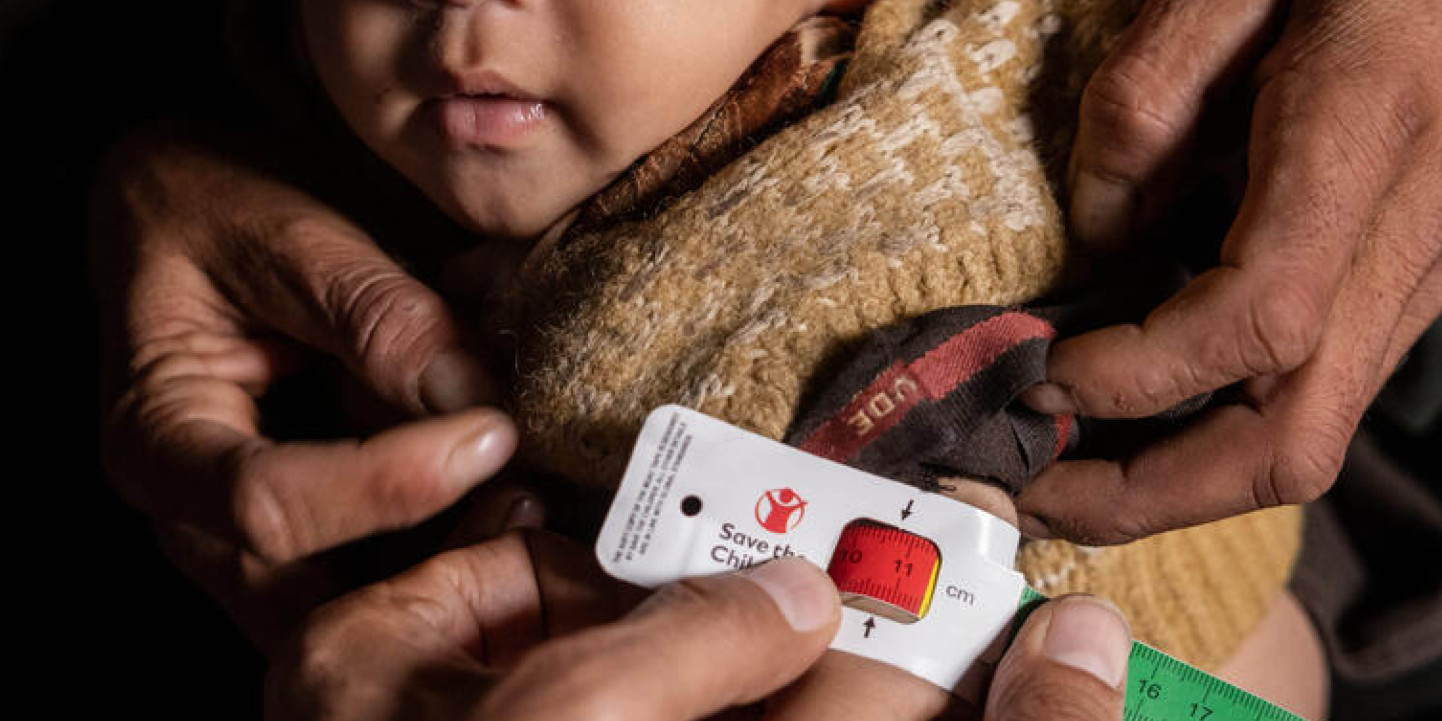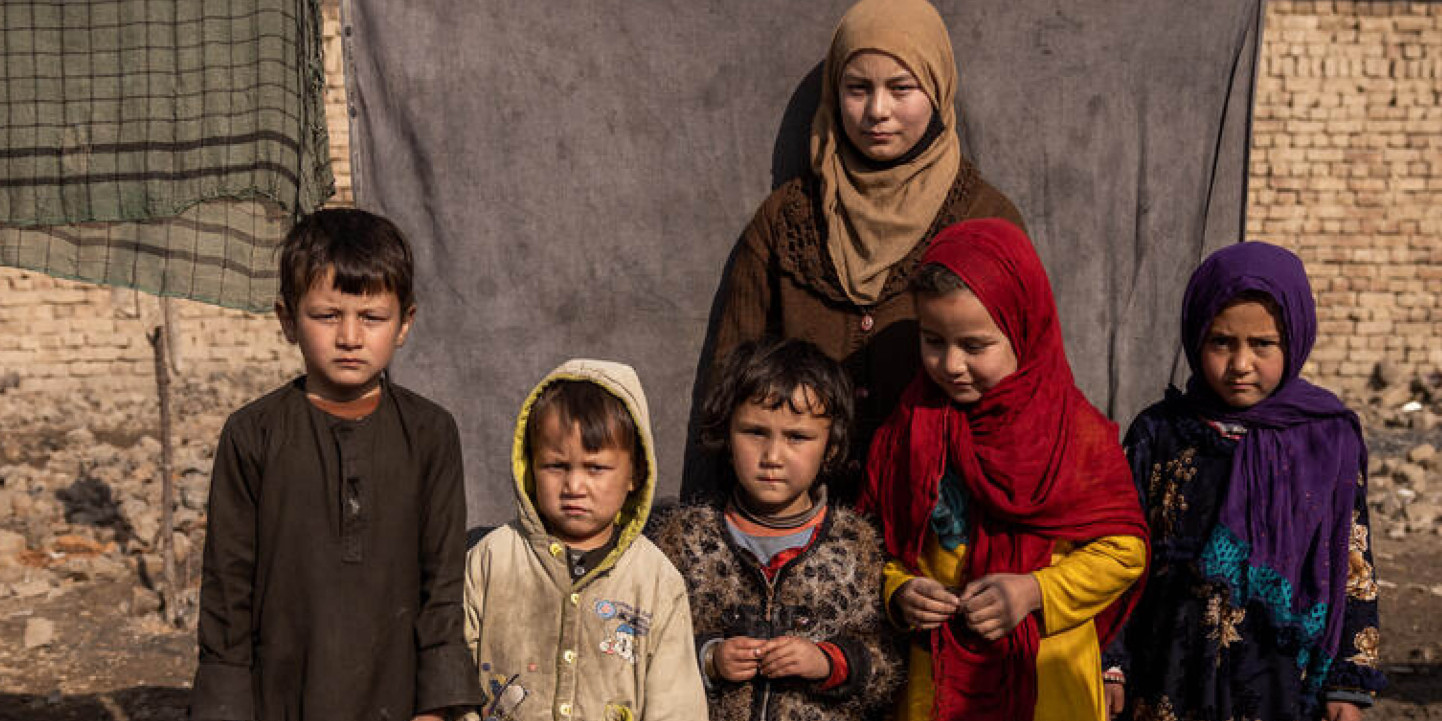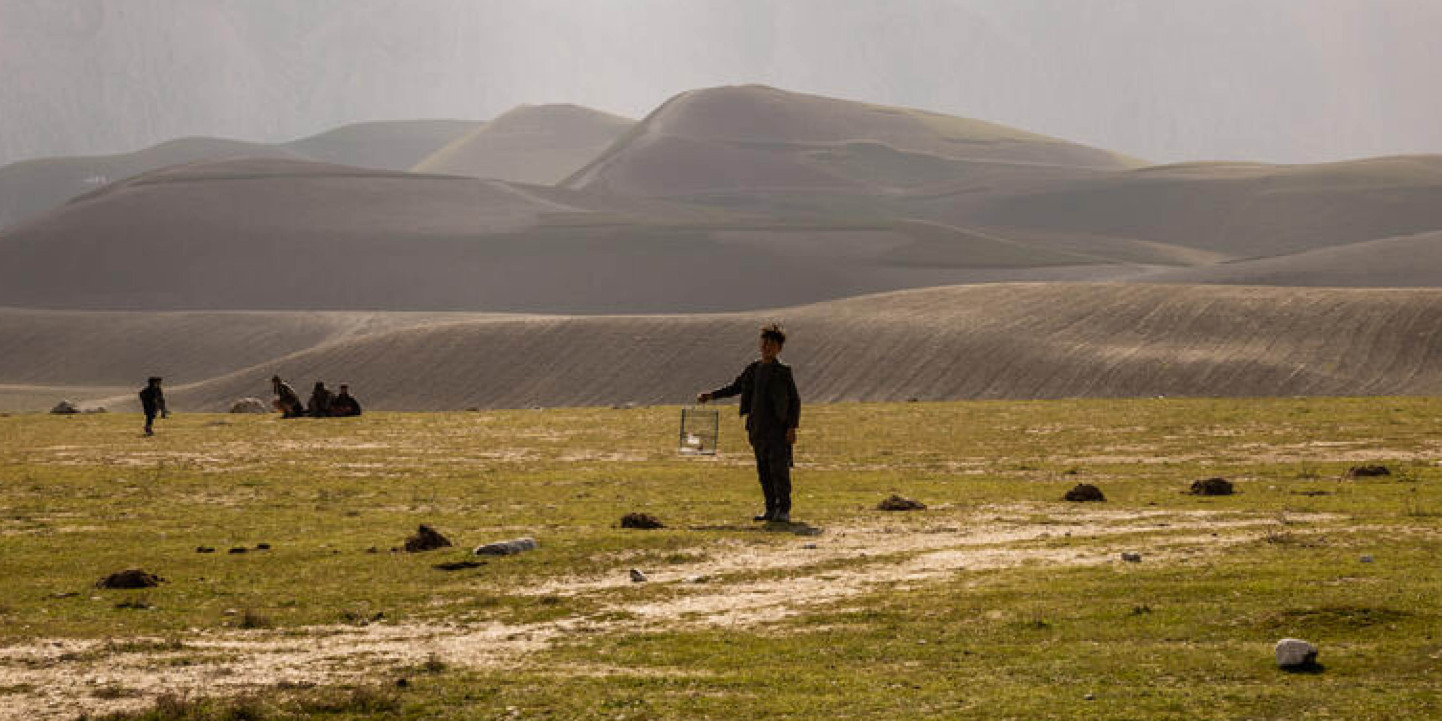From children living under tarpaulin in a basement, to desert communities digging wells and collecting rain water, a series of photographs for Save the Children by world-renowned photographer Jim Huylebroek to highlight the human tragedy unfolding in Afghanistan as the country marks six months since the dramatic transition of power.
The photographer travelled across the country with Save the Children - from the drought-ravaged plains of the north to the freezing streets of Kabul - capturing the stories of children whose lives have been devastated by the humanitarian crisis for the series titled " Children on the edge of life."
The images tell the stories of their fight for survival. Families making impossible decisions about which child they can afford to feed, and which will go hungry; infants dying on their way to medical treatment; mothers giving birth alone on dirt floors because they cannot afford to travel to hospital; and children forced to work on the streets to put food on the table.
In the north of Afghanistan, Laalah* 12, lives with her mother and four other siblings in a tent, built with tarpaulin sheets in the basement of a half-constructed building. Her father, Maalek*, struggles to find work as a labourer, and sometimes has no choice but to send his sons to find rubbish to sell or burn to keep their home warm.
Maalek, 40, said: " Whenever kids are free from school they go out and collect rubbish. They go onto the streets and collect and sell cans so they can afford their school expenses or food.
"My dream is to find somewhere, to build a place for them. To be able to build a house to live in so that they can stop being homeless like this."
Laalah said: " I hope there are schools in the future. I want to go to school. To be either a teacher or doctor. I want our living to be good, to eat good food."
Nearly five million children stand on the brink of starvation as the country faces its worst food crisis since records began. The triple impacts of drought, conflict and economic collapse have pushed many families into dangerous territory. Families sell what little they have to buy food, sending their children to work or getting by on bread alone.
The withdrawal of aid and the freezing of financial assets have driven Afghanistan’s public services to the brink of collapse. Hospitals across the country have been forced to close as wages for health workers have dried up. Desperately sick children are being turned away as there are simply no medicines to treat them, and, where they are available, soaring prices mean they are too expensive to afford.
In Kabul, 12-year old Arzoo*, the oldest of seven children in her family, hasn’t been to school all winter as schools are closed. Her father hasn’t been able to work for months, most days they just eat bread because they cannot afford anything else. Arzoo’s mother, father and 18-month-old brother are ill, but the family can’t afford to go to the doctor.
She said: " Now there is no job for my father to do and bring food home. One day we have food and the next day we don’t."
Arzoo’s mother, Ferisha*, 36, said: " There is absolutely no work. People are desperate for food; there is nothing."
When asked about the future for her children she said : "My hope is that they study and make progress; one can only have this hope."
Save the Children’s Country Director in Afghanistan, Chris Nyamandi, said:
" Each one of these stories is a powerful reminder of the grim reality for families across the country, the daily struggle to survive the winter and the millions of young lives that are at risk.
"Time is running out for Afghan children, to get the urgent support they so desperately need. Families are doing everything they can, making impossible decisions about who eats and who doesn’t.
"Humanitarian aid can get children through the winter, but this crisis can’t be solved with aid alone. Afghanistan is a cash-based economy, so without cash coming into the country, it’s not difficult to see that ordinary people are going to suffer. Governments must find a way to unlock vital funds and financial assets to prevent further mass loss of life."
Save the Children is distributing cash, winter clothes and fuel to families in some of the hardest-hit areas to help them stay warm and fed through the bitter winter. Cash assistance helps to prevent families from resorting to desperate measures that adversely affect children such as child labour, early marriage and reduced meals.
In 2021, Save the Children’s mobile health clinics in Afghanistan conducted nearly 375,000 check-ups and treated more than 12,000 children for malnutrition. The aid agency is distributing cash, winter clothes and fuel to families in some of the hardest-hit areas to help them stay warm and fed through the bitter winter.


